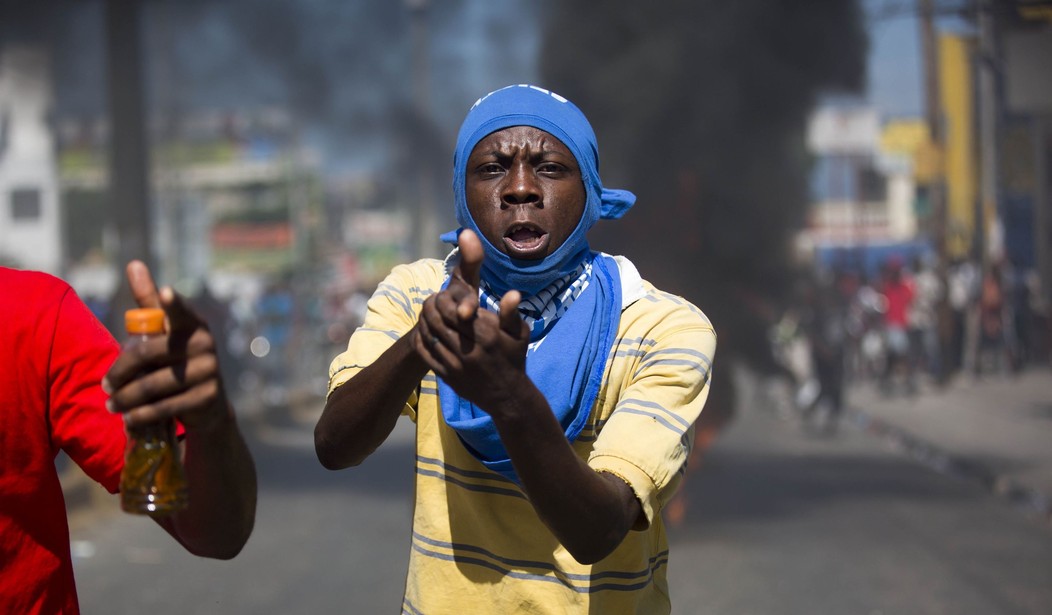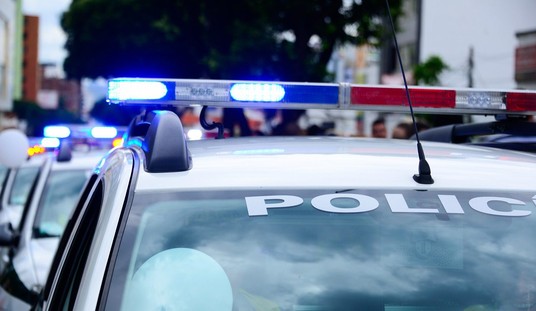Haiti may not be hell on earth, but it’s at least one of its suburbs. The island nation has been absolutely gutted over the decades, first by the despotic rule of the Duvalier family, and more recently by the power vacuum and near total absence of government authority in the wake of the assassination of Jovenel Moïse two years ago.
Crime is rampant, police are few and far between and in many cases, work alongside or in cooperation with the gangs that are the de facto authorities in many communities. At times the streets of Port-au-Prince have resembled a war zone; specifically a civil war pitting Haitians against Haitians in a deadly fight over control of a few square blocks of territory.
But as the New York Times reports, gang violence and violent crime has dropped dramatically in recent weeks as a new power has gained strength on the streets: the “bwa kale” movement, described by the Times as “a citizens “self-defense” movement. Over the past six weeks members have delivered their own brutal form of street justice against the gangs that are causing so many residents to live in fear, killing an estimated 160 suspected gang members.
“Before the 24th, every day someone passed by and demanded that I give him money because of my little business,” said Marie, 62, who sells shoes on the streets of Port-au-Prince. The Times is withholding her full name and those of other residents quoted in this article for their safety.
“When I had no money, they took whatever they wanted from my table, and this happened at any time of the day,” she said.
But two weeks ago, members of the “bwa kale” — crude slang for erection — burned a man believed to be a gang member alive in front of her shoe stall.
Though she sees the revenge movement as “God beginning to make things right,” Marie has misgivings.
“I support vigilance groups, but I don’t like the way they do it,” she said. “He could have been punished in another way. He could have been arrested and put in jail.”
The outbreak of mob justice is worrisome, Haiti experts say, because it could easily be used to target people who have nothing to do with gangs, and could lead to an explosion of even worse violence if the gangs seek retribution.
That it took a movement of self-appointed vigilantes to bring some semblance of calm to parts of Port-au-Prince underscores the chaos engulfing a country where no president has been elected in two years, and underpaid and outgunned police have fled in large numbers.
Even as vigilantes set people ablaze and set up checkpoints, many Haitians support them and consider them a natural consequence of an acute power vacuum.
It’s almost unfathomable to think of living in circumstances so awful that you shrug off or cheer on someone’s immolation, but I’m not sure many of us can truly comprehend what daily life is like for the average Haitian.
“People lived like rats who only came out of their holes to eat,” said Arnold Antonin, 80, a Haitian filmmaker living in the Dominican Republic who fled last year when his wife, Beatriz Larghi, was kidnapped and gangs took over his neighborhood, south of the capital. “The gangs were like the cats.” (His wife was released unharmed after three days, when a ransom was paid.)
On April 24, residents decided enough was enough. The 14 presumed gang members had been arrested and taken to a Port-au-Prince police station. Police officers watched helplessly as neighbors beat the suspects and used tires doused in gasoline to set them on fire, according to the report by the Center for Analysis and Research in Human Rights, known as CARDH, which used a combination of field investigators, local authorities, witness accounts, media and verified social media reports to compile its data.
…
“The reaction of the population, after years of gangs imposing their law, can be attributed to self-defense,” said Gédéon Jean, the executive director of CARDH. “Gangs are supported by certain authorities, politicians and business people. At almost all levels of the police force, gangs have links with police officers. The police do not have the means to systematically and simultaneously confront the growing gangs.”
The “bwa kale” movement has led to a significant reduction in gang violence, according to the report. In May, 43 murders were recorded, most in Port-au-Prince, compared with 146 in April, Mr. Jean said, adding that there have been almost no kidnappings.
“Fear has changed sides,” Mr. Antonin said. He plans to return to Haiti in the coming weeks now that his neighborhood is back in the hands of the community.
It wasn’t white-helmeted UN peacekeepers who have the gangs trembling in fear, but pissed off and fed-up citizens who’ve been pushed to the breaking point. I can’t say I agree with every one of their tactics, but then, I’m not living in a hellhole where the police and gangs are often on the same side and law and order is nowhere to be found.
“The people who are doing this are not criminals,” said Robert Maguire, a retired professor at George Washington University who has studied Haiti for decades. “They are just ordinary Haitians who are fed up, frustrated and frightened. And they want some kind of security. If they have to do it themselves, they’ll do it.”
It may not be pretty, but life is hardly beautiful for most Haitians these days. They’re in a fight for survival, and for the moment it looks like they have the upper hand over the gangs that have been waging war on them since the country descended into anarchy.









Join the conversation as a VIP Member